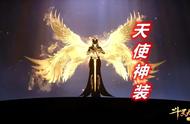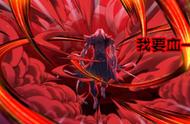某事不会比它发生得更频繁,或者比你期望的要少
Hardly/Hardly ever/Rarely/Infrequently/Seldom/Sporadically/Scarcely/For a short time
很少/偶尔/几乎没有/短时间内
例:
This is scarcely the time to be doubting our plans, Harry.
哈利,现在几乎不是怀疑我们计划的时候。
It hardly ever rains here, so if you draw lines in the sand, you can come back and see them years later.
这里几乎从不下雨,所以如果你在沙地上画线,你可以在几年后回来看。
The ice cream truck rarely comes by our neighborhood, but is very popular when it does.
冰淇淋车很少经过我们附近,但很受欢迎。
To create doubt
表示怀疑
Unlikely/Improbable/Doubtful/Possibly/Probably/Not likely/Undecidedly/Apparently
不可能/可疑/可能/不可能/不确定/明显不可能/不可能/也许/不可能/不确定/明显
例:
To answer your question, it is highly unlikely that Cassie will be picked for the position.
回答你的问题,凯西被选上这个职位的可能性很小。
Don’t get your hopes up because your design is not likely to be selected.
不要因为你的设计不太可能被选中而抱有希望。
The doctor will probably have some time to see you in the afternoon, so come when you are available.
下午医生可能有时间来看你,有空的时候来。

To make generalizations, or talk about multiple things that are related, but not the same
概括,或谈论多种相关但不相同的事情
Basically/Essentially/Generally/Pretty/Rather/Virtually
基本上/大体上/一般地/漂亮/相当于/实际上
例:
“Traveling in the different countries in Asia is basically the same,” said John, who had never been to any of the countries in Asia.
从未去过亚洲任何一个国家的约翰说:“在亚洲的不同国家旅行基本上是一样的。”
Essentially, the point of the festival is to celebrate the great things that have happened in the past year.
从本质上讲,节日的意义在于庆祝过去一年发生的大事。
Virtually every tournament only lets boys compete, probably because everyone is afraid to be beaten by a girl.
几乎每场比赛都只让男孩参加,可能是因为每个人都害怕被女孩打败。
限定词不限于以上列表,可以是长短语,也可以是单个单词。
什么是强调词?
强调词是另一类特殊的修饰语。它们具有与限定词相反的效果,并加强(而不是削弱)它们修改的单词和短语的含义。
They are either positive (like very) or negative (like definitely not).
它们要么是积极的(像非常)要么是消极的(像绝对不是)。这两类强调词的例子如下:
肯定强调词
Very/Extremely/Absolutely/Completely/Greatly/Too/So/Totally/Utterly/Highly/Rather/Really/Exceptionally/Particularly/Seriously/Quite (in American, but not British, English)/Awfully (be careful: awful means very bad, but awfully usually describes some great, like The cake was awfully delicious!)
非常的/绝对的/完全的/非常的/太多的/所以的/完全的/程度高的/相当的/非常的/特别的/认真的/相当的(在美国,但不是英国,英语)/Awfully(小心:awful 的意思是非常糟糕,但是awfully通常描述一些伟大的,如 The cake was awfully delicious! 蛋糕是非常美味的!)
例:
The boss was very adamant that the software be changed this way, so we had better listen to his demands.
老板非常坚决地要求这样修改软件,所以我们最好听听他的要求。
I completely agree with Nathan, even though we never agree on anything.
我完全同意内森的观点,尽管我们从来没有达成一致。
Sally really wanted to kiss Liam that night.
那天晚上莎莉真的很想吻利亚姆。

否定强调词
Never/At all/What on earth…?
从来没有/根本没有/到底是什么…?
e. What on earth is Mindy doing? To question Mindy’s actions.
明迪到底在干什么?质疑明迪的行为。
Why… ever…?
究竟为什么?
e. Why did I ever agree to help you move your furniture? To indicate regret or a problem.
我究竟为什么同意帮你搬家具?表示遗憾或问题。
Dangerously/Seriously/Ever again/Bitterly (goes with specific words, only, including cold, unhappy, disappointed, sad, )
危险的/严肃的/永远的/痛苦的(仅限于特定的词语,包括冷漠、不快乐、失望、悲伤)
例:
Luke never wants to see Philip ever again.
卢克再也不想见菲利普了。
My son does not want to attend this college at all!
我儿子根本不想上这所大学!
You are getting dangerously close to the edge of my patience.
你正危险地接近我的忍耐极限。
一个更大的数字
Many/Most/Some/Lots of/Numerous/Countless/A majority/Mostly/Various
很多/大多数/一些/大多数/数不尽的/大多数的/各种各样的
例:
Countless efforts have been made to change the system, but nothing has worked.
为改变这一制度已经做了无数的努力,但什么也没有奏效。
A majority of the benches in this park were donated by people from this neighborhood.
公园里的长椅大部分是由附近的人捐赠的。
Herbert was mostly just curious why you designed your office this way.
赫伯特只是好奇你为什么要这样设计你的办公室。

某事经常发生,或比你期望的更普遍
Often/Frequently/Commonly/For a long time/Usually/Sometimes/Repeatedly
经常/频繁地/通常地/长时间/常/有时/反复
例:
For a long time, I thought that all rabbits just ate carrots all the time.
很长一段时间以来,我一直以为所有的兔子都只吃胡萝卜。
She frequently stops by our shop to buy a jar of pickles.
她经常来我们店里买一罐泡菜。
I have told you repeatedly not to bother me when I am working, have I not?
我反复告诉过你,我工作时不要打扰我,是吗?
何时以及如何使用修饰词、限定词和强调词?
在很大程度上,使用这些单词和短语可以描绘出一幅更加丰富多彩和充满活力的画面,你想说什么。它们有助于提供更多的细节和显示完整的图片。
修饰语可以用在句子的任何地方,可以有多种不同的形式。限定词和强调词是经常出现在它们所修饰的词或短语前面的词或短语。然而,使用太多会使你的写作或演讲变得杂乱无章。减少你使用的单词数量和句子复杂程度的一个好方法就是复习你的写作。
例:
Very important = crucial, central, essential
非常重要=关键、中心、关键
Very unimportant = trivial, irrelevant
非常不重要=微不足道,无关紧要















